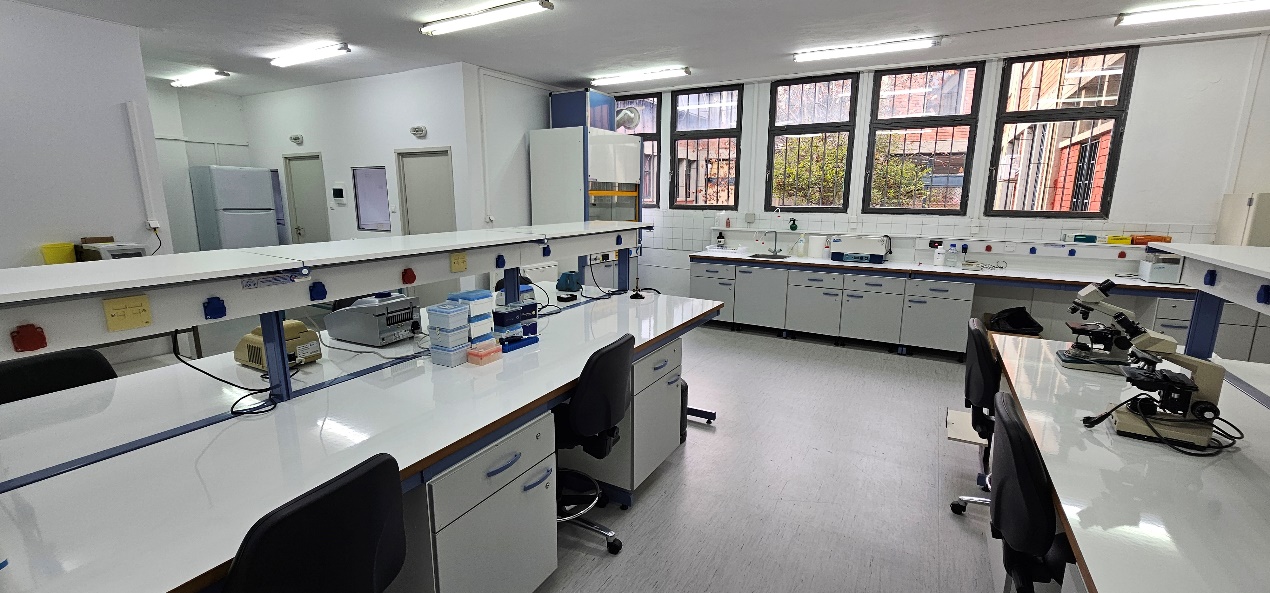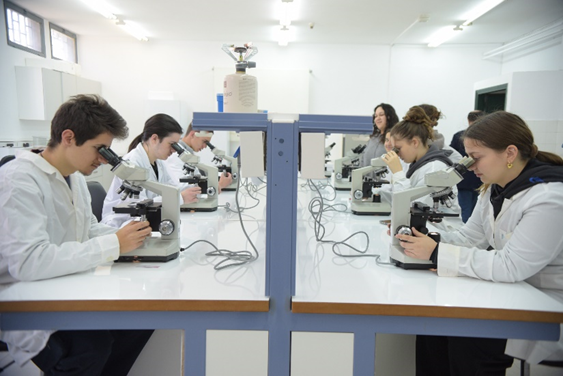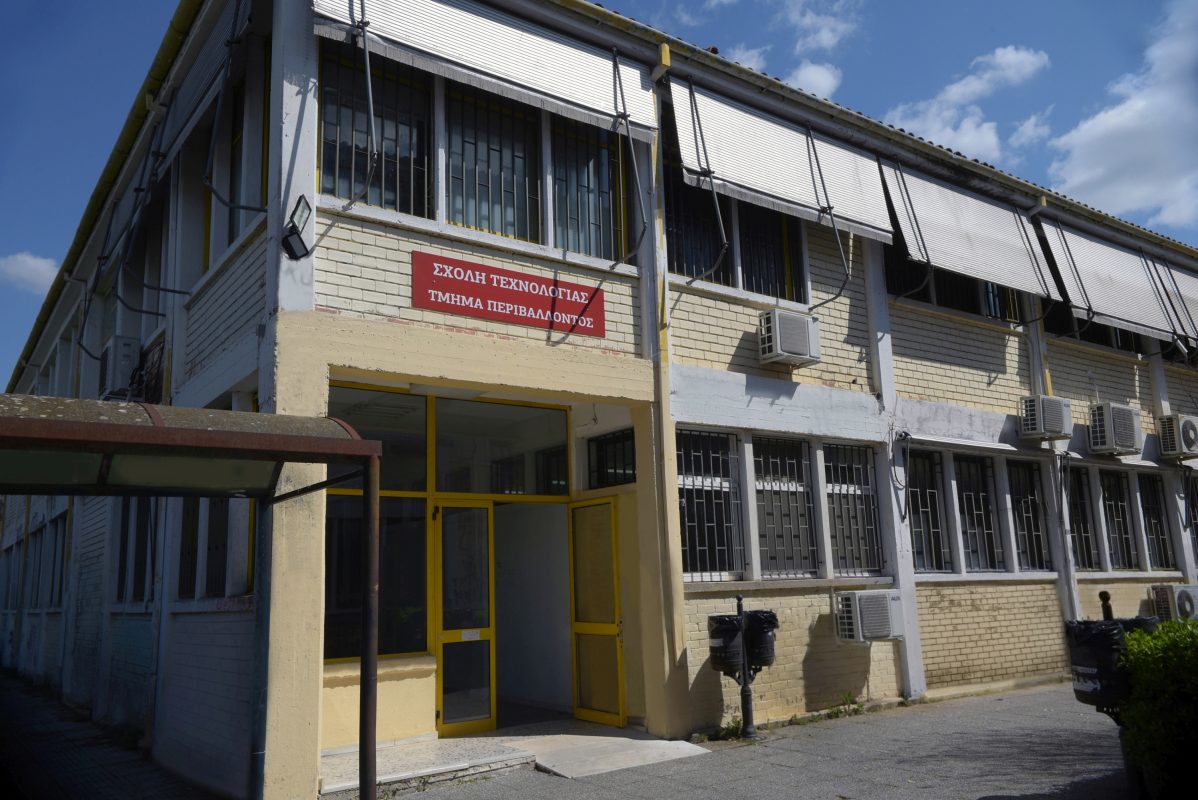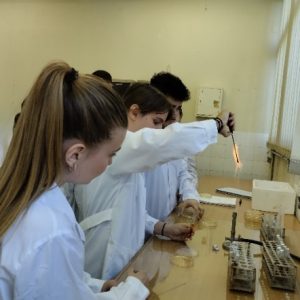Research Interests
The laboratory’s research focuses on two main areas:
- Molecular Environmental Microbiology and Virology: Study of microorganism-host interactions in various environments| Molecular ecology of microbes and viruses| Development of innovative methods for studying microorganisms| Molecular detection and characterization of microbes and viruses in biological and environmental samples| Investigation of microbial and viral evolution factors affecting public and ecosystem health
- Microbial Ecology and Soil Microbiology: Soil microbial ecology| Impact of environmental pollutants on the composition and function of soil microbial community | Monitoring microbial activities that affect biogeochemical cycles and greenhouse gas emissions| Environmental fate and behaviour of agrochemicals and other xenobiotics.
Personnel
1. Faculty Members
Zacharoula Kyriakopoulou: Professor of Environmental and Molecular Virology (Laboratory Director)
Evangelia Papadopoulou: Assistant Professor of Environmental Microbiology
2. Μεταδιδακτορικοί Ερευνητές
Dr. Chiara Perruchon, Environmental Microbiology and Biotechnology
3. PhD students
Maria Kolovou
Dimitris Dalkidis
4. Master’s Students
Despoina Papanikolaou
Contact
Department of Environmental Sciences (Ground floor), University of Thessaly, Gaiopolis Campus, Larissa – Trikala Ring Road, P.O. Box 41500, Larissa.
Τel.:+30 2410-684613, e-mail: zahkyr@uth.gr
Publications (2020-2025)
- Dhakar, K., Kellari, L. M., Karas, P. A., Theodorakopoulos, A., Styllas, M. N., Papadopoulou, E., Karpouzas, D. G., Papadopoulou, K. K., Vasileiadis, S., Papadopoulou, K. K. (2024). Microbiome analysis of the lithophytic resurrection plant Ramonda heldreichii reveals root-driven tight-rhizosphere vs elevation-specific loose-rhizosphere communities. Rhizosphere, 32, 100969. https://doi.org/10.1016/j.rhisph.2024.100969
- Papadopoulou, E. S., * Bachtsevani, E., Katsoula, A., Charami, C., Lampronikou, E., Vasileiadis, S., Karpouzas, D. G. (2024). Nitrification inhibitors impose distinct effects on comammox bacteria and canonical ammonia oxidizers under high N fertilization regimes. Applied Soil Ecology, 199, 105417. https://doi.org/1016/j.apsoil.2024.105417
- Kolovou M., Panagiotou D., Süße L., Loiseleur O., Williams S., Karpouzas D.G., Papadopoulou E.S.* (2023). Assessing the activity of different plant-derived molecules and potential biological nitrification inhibitors on a range of soil ammonia- and nitrite-oxidizing strains. Appl Environ Microbiol., 89(11): e0138023. https://doi.org/10.1128/aem.01380-23
- Zygouras I., Leventakou D., Pouliakis A., Panagiotou S., Tsakogiannis D., Konstantopoulos G., Logotheti E., Samaras M., Kyriakopoulou Z., Beloukas A., Pateras I.S., Delides A., Psyrri A., Panayiotides I.G., Yiangou M., Kottaridi C. (2023). Human Papillomavirus 16 DNA Methylation Patterns and Investigation of Integration Status in Head and Neck Cancer Cases. Int J Mol Sci., 24(19), 14593. https://doi.org/10.3390/ijms241914593
- Τsakogiannis, D., Nikolaidis, M., Zagouri, F., Zografos, E., Kottaridi, C., Kyriakopoulou, Z., Tzioga, L., Markoulatos, P., Amoutzias, G. D., Bletsa, G. (2023). Mutation Profile of HPV16 L1 and L2 Genes in Different Geographic Areas. Viruses, 15(1), 141. https://doi.org/10.3390/v15010141
- Papadopoulou E.S.,* Bachtsevani E., Papazlatani C.V., Rousidou C., Brouziotis A., Lampronikou E., Tsiknia M., Vasileiadis S., Ipsilantis I., Menkissoglu-Spiroudi U., Ehaliotis C., Philippot L., Nicol G.W., Karpouzas D.G. (2022). The Effects of Quinone Imine, a New Potent Nitrification Inhibitor, Dicyandiamide, and Nitrapyrin on Target and Off-Target Soil Microbiota. Microbiol Spectr 10:e02403-21. https://doi.org/10.1128/spectrum.02403-21
- Bachtsevani, E., Papazlatani C.V., Rousidou C., Lampronikou E., Menkissolgou-Spiroudi, U., Nicol, G.W., Karpouzas, D.G., Papadopoulou E.S.* (2021). Effects of the nitrification inhibitor 3,4‑dimethylpyrazole phosphate (DMPP) on the activity and diversity of the soil microbial community under contrasting soil pH. Biology and Fertility of Soils 57: 1117–1135. https://doi.org/10.1007/s00374-021-01602-z
Doctoral Dissertations
Maria Kolovou: Impact of agrochemicals on soil ammonia-oxidizing microorganisms: An in vitro and in situ assessment (Supervisor: Papadopoulou Ε.S.).
Dimitris Dalkidis: Identification of synthetic and biological nitrification inhibitors activity spectrum and mode of action on nitrifying microorganisms (Supervisor: Papadopoulou Ε.S.).
Research Projects (2020-2025)
- Industrial Project: “Investigation of Nitrification Inhibitors Activity on Soil Ammonia- and Nitrite-Oxidizing Isolates” (Part II). Duration: 2024-2025. Funded by: Syngenta Crop Protection AG, Basel, Switzerland (Coordinator: E. Papadopoulou)
- Industrial Project: “Investigation of Nitrification Inhibitors Activity on Soil Ammonia- and Nitrite-Oxidizing Isolates” (Part I). Duration: 2022-2023. Funded by: Syngenta Crop Protection AG, Basel, Switzerland (Coordinator: E. Papadopoulou)
- Privately Funded Project: “Pipeline for Development and Commercialization of Biological Nitrification Inhibitors to mitigate GHG Emissions from Cultivated Soils.” Duration: 2022-2024 (Participant: E. Papadopoulou)
- GSRT-ELIDEK: “FRIDA – From Inhibition to Adaptation: Exploring the interplay between nitrification inhibitors and the soil microbiome towards sustainable agriculture.” Duration: 2022-2025 (Coordinator: Dr. Chiara Perruchon, PI of the Host Institute: E. Papadopoulou). https://frida.env.uth.gr/
- EU-HORIZON-WIDERA-2021-ACCESS-03 (Twinning): “ACTIONr – Research Action Network for Reducing Reactive Nitrogen Losses from Agricultural Ecosystems.” Duration: 2022-2025 (Participant: E. Papadopoulou). https://www.actionr.eu/
- GSRT-ELIDEK: “REASSESS – Revolutionizing the assessment of the toxicity of pesticides on soil microorganisms: from single species tests to ecosystem approaches.” Duration: 2022-2025 (Participant: E. Papadopoulou). https://reassess.bio.uth.gr/
- EU, MSCA-ITN-EID-H2020: “ARISTO – The European Industry-Academia Network for Revising and Advancing the Assessment of the Soil Microbial Toxicity of Pesticides.” Duration: 2020-2023 (Participant: E. Papadopoulou). https://aristo.bio.uth.gr/

























